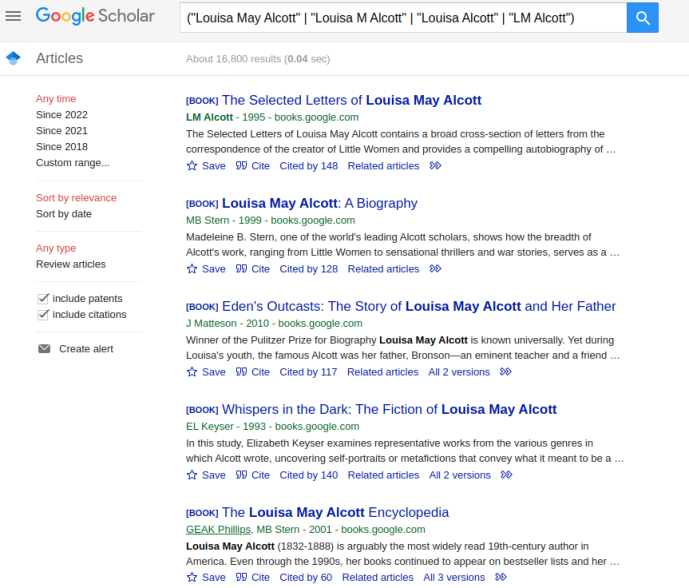By ResearchBuzz
NEW RESOURCES
National Science Foundation: Researchers develop dashboard to track invasive and vector mosquitoes. “Researchers at the University of South Florida, funded by the U.S. National Science Foundation, created the Global Mosquito Observations Dashboard to surveil mosquito-borne diseases with automated mosquito identification. The dashboard makes use of data from other apps that use citizen scientists to capture photos of mosquitoes. The approach offers international data on a scale otherwise prohibitive due to expense and logistics.”
TWEAKS AND UPDATES
National Taxpayer Advocate Blog: NTA Blog: Improving Services to Taxpayers With Visual Disabilities. “Millions of U.S. taxpayers are visually impaired and unable to read print material in a standard font size. As a result of a settlement agreement between the IRS and the National Federation of the Blind (NFB) on July 10, 2020, the IRS agreed to develop a process for taxpayers to request post-filing tax notices in a variety of acceptable formats, including Braille and large print.”
USEFUL STUFF
MakeUseOf: 8 Emotional Support and Self-Care Apps and Resources for Women. “There is an ever-increasing collection of apps to provide self-care and emotional support to help cope with the stresses and strains of modern living. Some of these are designed especially for women. Here are some of the best apps and online resources providing women with aid and support to help with all stages of life.” I thought this was going to be a cheesy list where everything was pink and all worries could be fixed with a glass of wine in a hot bath. It’s much better than that.
AROUND THE INTERNET WORLD
NOLA: Gwendolyn Midlo Hall, historian renowned for research into Louisiana slavery, dies at 93. “Gwendolyn Midlo Hall, a New Orleans-born historian who revolutionized teaching about slavery in Louisiana by applying computer technology to information she unearthed in musty archives and courthouse records throughout the state, died Monday at her home in Guanajuato, Mexico. She was 93.”
Michigan Daily: Social media presence brings positive reviews for UMich president-elect. “From replying to direct messages to reposting community content, University president-elect Santa Ono is social media savvy, and the student body is here for it. Since he was announced as the next president in July, Ono’s Twitter and Instagram have been filled with content about University events and student stories, making his passion for the community relatable.”
SECURITY & LEGAL
Politico: Digital great game: The West’s standoff against China and Russia. “The International Telecommunications Union (ITU) — a 150-year-old body that sets rules for how much of the global telecom and tech infrastructure works — will gather at end of September in Bucharest for a three-week conference. The more than 190 member countries will elect a new secretary-general and other top brass, as well as set the policy goals for the U.N. agency for the next four years. The two candidates for the top job, Doreen Bogdan-Martin, an American, and Rashid Ismailov, a Russian, have crisscrossed the globe to rally support from telecom policymakers and regulators.”
CoinDesk: Celsius Resembled Ponzi Scheme at Times, Vermont Regulator Says. “Crypto lender Celsius Network misled investors about its financial health, using its CEL token to bolster its balance sheet and at times using new investor funds to repay old investors, the Vermont Department of Financial Regulation alleged in a new filing Wednesday.”
LA Taco: A New Twitter Bot Will Tell You An Officer’s Name, Rank, And Race By Putting In Their Serial Number. “WhosThatCop is a Twitter bot created by user @NN35007 that allows users to enter the serial number of an officer they’ve encountered, which then reveals the name of the officer, their job, gender, and race.”
RESEARCH & OPINION
Ars Technica: Runway teases AI-powered text-to-video editing using written prompts. “In a tweet posted this morning, artificial intelligence company Runway teased a new feature of its AI-powered web-based video editor that can edit video from written descriptions, often called ‘prompts.'”
Boing Boing: Creating an AI-generated comic book in Midjourney. “I really enjoyed watching filmmaker Elvis Deane talk about his experience in creating a comic book using the Midjourney AI art program. I love some of the analogies he uses—that working with a current AI is kind of like trying to communicate with your dog, or like having an infinite number of monkey artists who aren’t giving you exactly what you want, but sort of.” Good afternoon, Internet…
Do you like ResearchBuzz? Does it help you out? Please consider supporting it on Patreon. Not interested in commitment? Perhaps you’d buy me an iced tea. I love your comments, I love your site suggestions, and I love you. Feel free to comment on the blog, or @ResearchBuzz on Twitter. Thanks!
September 14, 2022 at 12:34AM
via ResearchBuzz https://ift.tt/ghepAwF
 on Twitter, Reddit, and the comment section of Instagram posts. It’s a not-so-subtle nod in celebration of the passing of the reign, influence, or life of a particularly controversial character.”
on Twitter, Reddit, and the comment section of Instagram posts. It’s a not-so-subtle nod in celebration of the passing of the reign, influence, or life of a particularly controversial character.”






